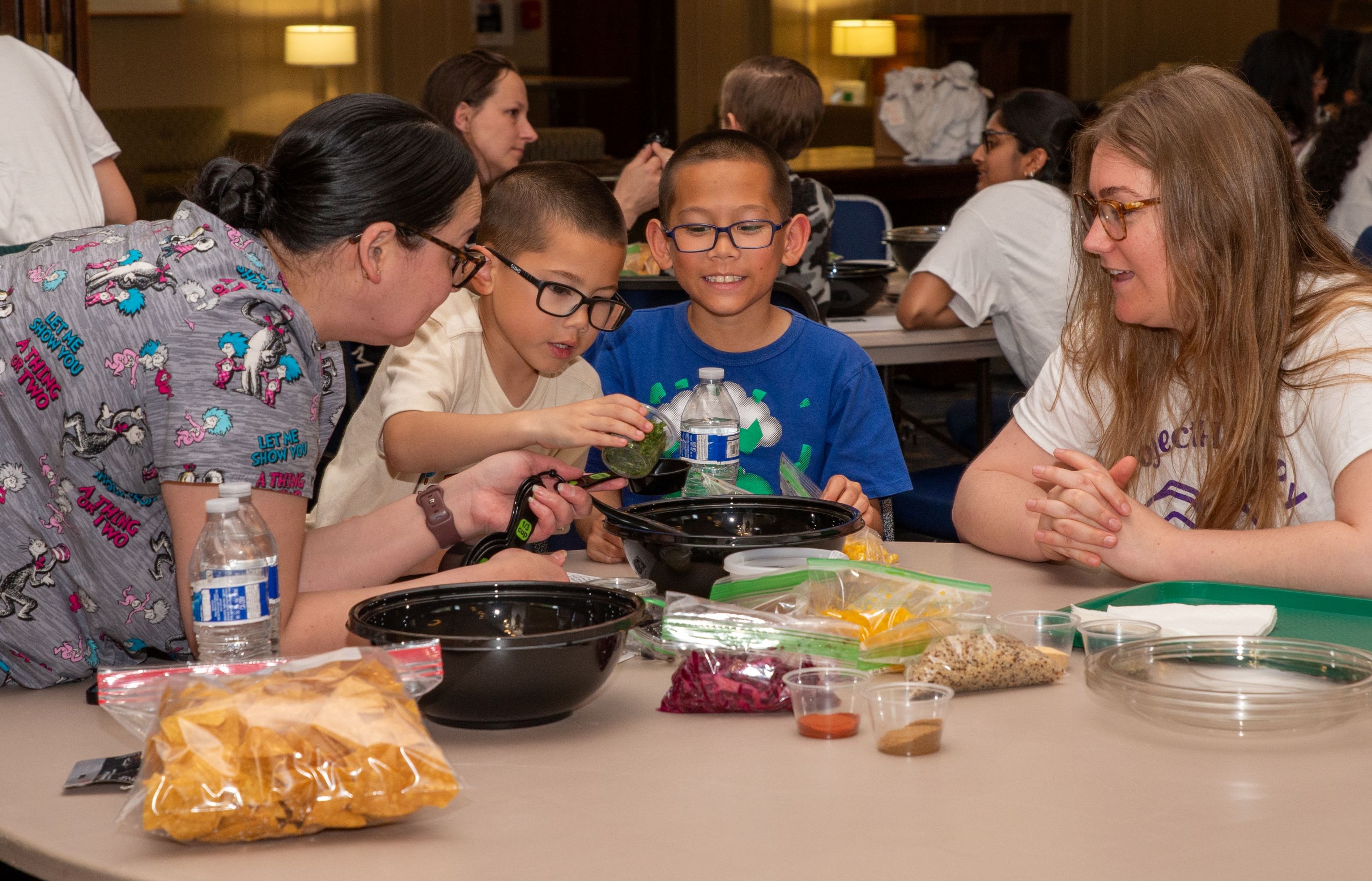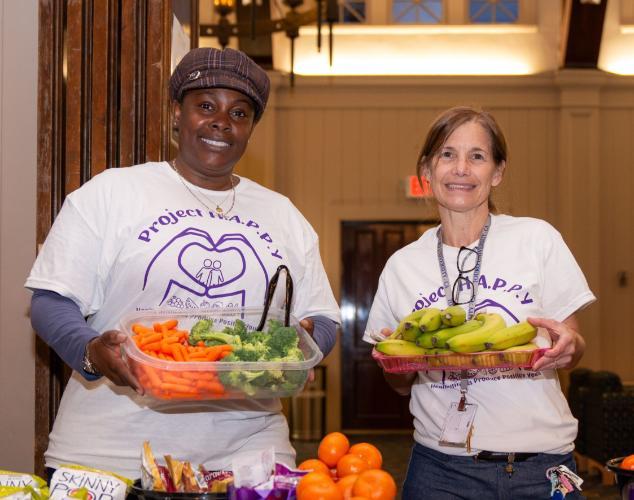Program Helps Kids Make Healthy Habits
Student-Led Personal Coaching Empowers Kids to Develop an Active and Food Aware Lifestyle through Project HAPPY

The goal of Project HAPPY (Healthy Attitudes Produce Positive Youth) is to get kids to eat better and move more.
The program, started by Dr. Tami Hendriksz, Dean of the College of Osteopathic Medicine (COM), and the Interim Chief Academic Officer of Touro University California (TUC), held its graduation ceremony in person, and it was a lively affair with music and entertainment.
“You can tell by how full the room is tonight, how incredibly successful it is at keeping this many families engaged,” says Hendriksz of the lively packed ballroom at Farragut Inn filled with participant children and parents.
This year the program was led by Dr. Grace Marie Jones, COM Associate Professor Department of Foundational Biomedical Sciences and Dr. Traci Stevenson, COM Assistant Professor and certified culinary medicine specialist. Jones and Stevenson took a hybrid approach for the 10-week program, hosting the first and last sessions in person.
The graduation ceremony for children and their families who participated felt more like a celebration. Kids of all ages are dancing, assembling healthy recipes at their tables with prepared ingredients, or snacking on their hard work.
 “Today, the kids are cooking their own snacks, and hopefully that makes them excited about those things rather than just wanting packaged or fast food,” says Stevenson, in the photo on the right, standing next to Jones.
“Today, the kids are cooking their own snacks, and hopefully that makes them excited about those things rather than just wanting packaged or fast food,” says Stevenson, in the photo on the right, standing next to Jones.
Pre-pandemic, Project HAPPY was entirely in person which included cooking and exercise classes. Stevenson says that while COVID-forced Zoom meetings limited those experiences, they also found that video meetings presented benefits for both the Touro students and parents by minimizing the commute burden of meeting in person.
“I think we found this balance with our first and last event in person but meeting on Zoom in between,” adds Stevenson of the hybrid approach.
Throughout the program, participants found new ways of thinking about food and exercise, discovering the joy and satisfaction that comes from nourishing their bodies and staying active. The reason that parent Stacy Tolman-Cordero joined Project HAPPY with her kids Brayden and Mason was so they would have something to do that also taught them about eating better and fitness.
“Their favorite activity was learning about sugar content in each different kind of drink they have,” says Tolman-Cordero. “It definitely made them more conscious of the amount of sugar they consume. They enjoyed learning about the different nutrients in food, and what vegetables provide which vitamins, and they’ve also increased the time they move, a lot more playing outside and less electronics.”
For Tolman-Cordero’s family, student doctor Kimberly Glass was the primary liaison and presented the lessons and demonstrations through Zoom. Glass’s interest in Pediatrics, education, and healthcare is what brought her as a volunteer to Project HAPPY. The experience working one-on-one with a family was fulfilling for Glass, and learned that working with kids means being prepared for anything.
“It's different than running a lesson plan, so you present the ideas and let them run with it,” says Glass. “When they get really curious, you just engage them wherever they're at. Maybe you're trying to move on, but they're still really interested in something you brought up, so you just run with that because whatever they get out of it is going to be great.”
For many families, the cooking demonstrations made healthy, delicious meals enjoyable, while physical activity sessions got everyone moving their bodies and staying active more often. The program is a win-win for families and student volunteers.
“One of the most meaningful outcomes that we've seen with Project Happy is with our students and their comfort educating pediatric families and patients about nutrition and healthy lifestyles,” says Hendriksz. “They're going to benefit from that for the rest of their careers.”
